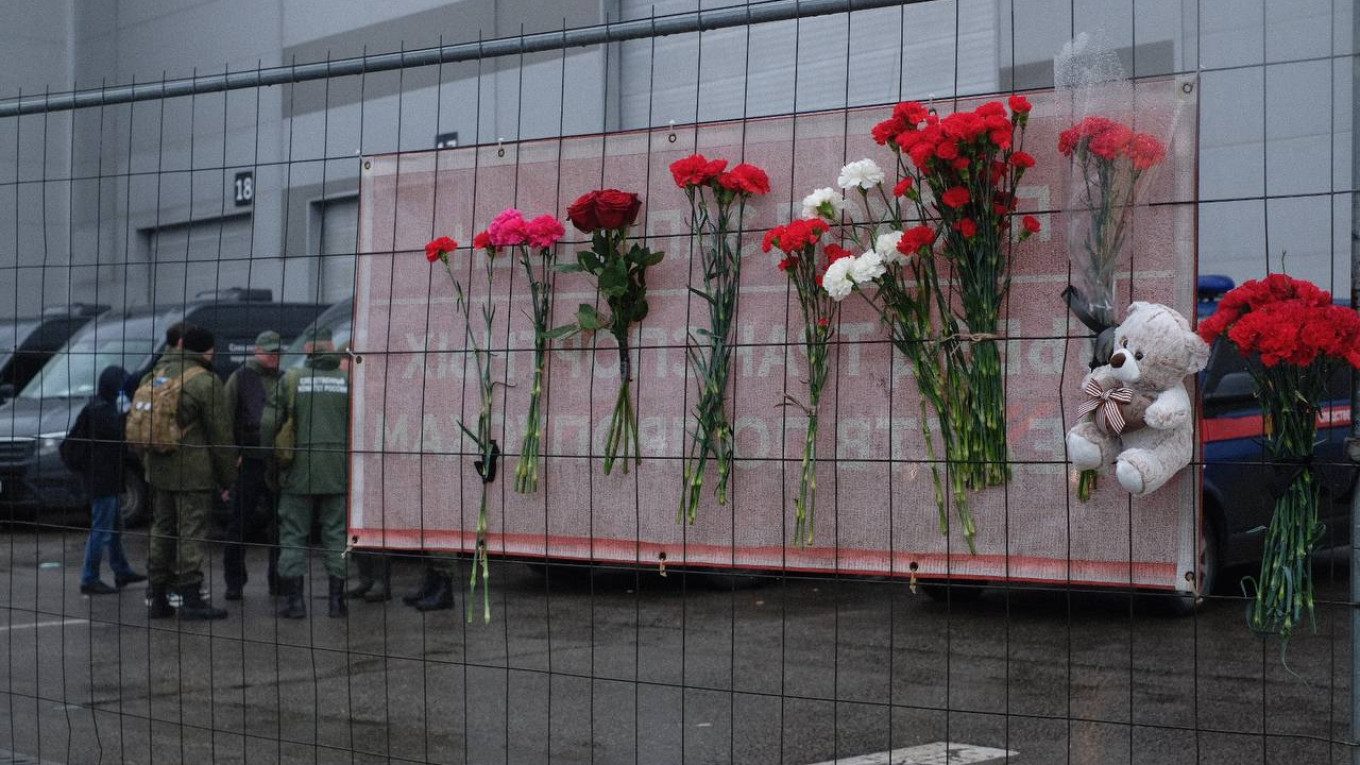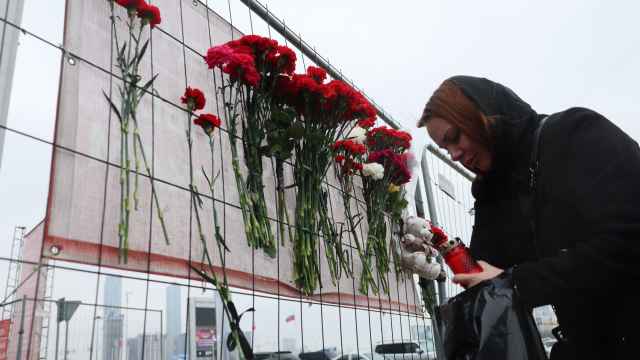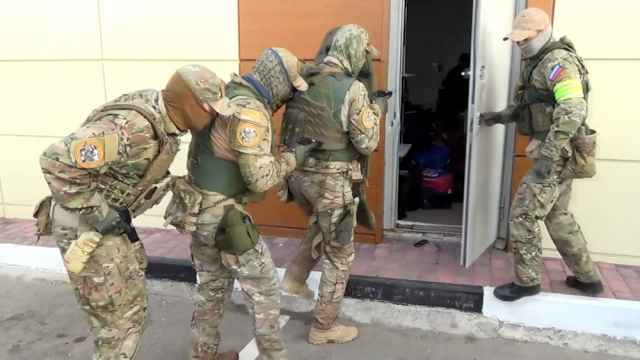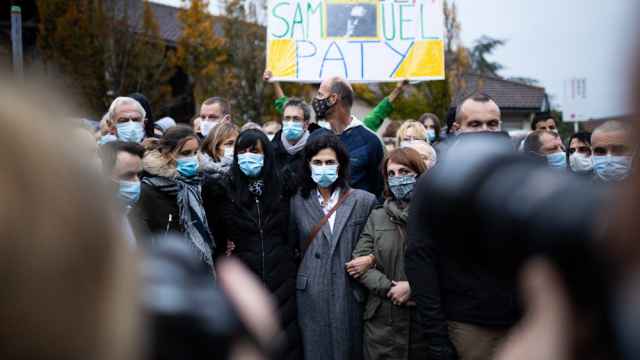An attack by gunmen on a Moscow suburban concert hall Friday left at least 139 dead, according to Russian authorities.
Here is what we know about the attack on the Crocus City Hall in Krasnogorsk ahead of a concert by the Piknik rock band:
Four attackers
The attack began around 8:15 p.m. before the start of a concert by the popular Soviet-era band.
Four camouflaged gunmen stormed the building, firing on concert-goers with automatic weapons before setting fire to the venue, according to investigators, trapping many inside.
More than 5,000 people were in the concert hall at the time of the attack.
Russian social media channels close to the security services showed videos of at least two men walking into the hall. Others showed bodies and groups of screaming people rushing towards exits.
Scores of people hid in the hall or rushed towards entrances to the basement or roof to escape the bullets.
Toll
At least 139 people were killed, and officials expect the death toll to rise further, with rescuers still searching the site for remains.
Another 97 people are still in hospital.
The emergency situations ministry said fire services helped about 100 people escape through the basement of the concert hall, while rescue operations were launched to reach those on the roof.
TASS news agency said that all of the Piknik group had been evacuated safely.
IS claims responsibility
The Islamic State group has claimed responsibility for the attack, and IS-affiliated media channels have published graphic videos of the gunmen inside the venue.
Russian President Vladimir Putin said that "radical Islamists" were behind the attack — but suggested they were linked to neighboring Ukraine, which Moscow invaded in February 2022.
Russia's FSB security service said some of the perpetrators had fled towards the Ukraine border, adding that the assailants had "appropriate contacts" in the country.
Ukraine meanwhile accused the Kremlin of orchestrating the attack and justifying an escalation in the war, and said the accusations against the country were to "further fuel anti-Ukrainian hysteria in Russian society."
Suspects held
The Kremlin said 11 people, including the four assailants, had been arrested.
One of those detained has Russian citizenship, the Interfax news agency reported.
Four of the suspects — with bruises and cuts on their swollen faces — were dragged into a Moscow court before dozens of reporters on Monday.
They were identified as citizens of Tajikistan.
The court said two had pleaded guilty.
In total, eight suspects have been remanded in custody over the attack, with the court saying Tuesday the latest suspect to be remanded was a man originally from the Central Asian country of Kyrgyzstan.
All of those held in custody have been charged with terrorism and face up to life in prison.
Turkey connection
Two of the 11 detained — Tajik nationals Rachabalizoda Saidakrami and Shamsidin Fariduni — had spent time in Turkey shortly before the attack, and entered Russia on the same flight from Istanbul, according to a Turkish security official.
Turkish authorities rounded up scores of suspects with alleged links to IS extremists in nationwide raids on Tuesday, detaining 147 people.
Warnings
The US embassy had said two weeks before the attack that there was a risk of "extremists" targeting mass gatherings in Moscow, including concerts.
"If the United States had reliable information on this, it should have immediately transmitted it," said Russian Foreign Ministry spokeswoman Maria Zakharova, calling Friday's attack a "monstrous crime."
Russian authorities said on March 3 that six suspected Islamic State fighters had been killed in an operation in Ingushetia, a small Muslim-majority republic in the Caucasus region.
Russia has been the target of past attacks by Islamic militants, but also mass killings with no clear political link.
A Message from The Moscow Times:
Dear readers,
We are facing unprecedented challenges. Russia's Prosecutor General's Office has designated The Moscow Times as an "undesirable" organization, criminalizing our work and putting our staff at risk of prosecution. This follows our earlier unjust labeling as a "foreign agent."
These actions are direct attempts to silence independent journalism in Russia. The authorities claim our work "discredits the decisions of the Russian leadership." We see things differently: we strive to provide accurate, unbiased reporting on Russia.
We, the journalists of The Moscow Times, refuse to be silenced. But to continue our work, we need your help.
Your support, no matter how small, makes a world of difference. If you can, please support us monthly starting from just $2. It's quick to set up, and every contribution makes a significant impact.
By supporting The Moscow Times, you're defending open, independent journalism in the face of repression. Thank you for standing with us.
Remind me later.






